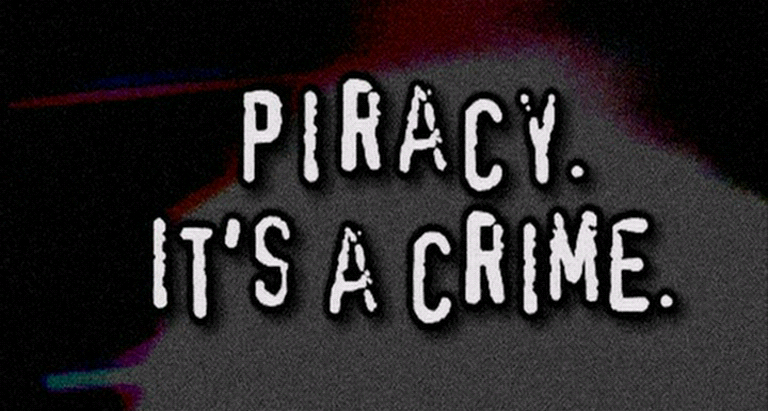Case Note: Case C-314/12 UPC Telekabel Wien GmbH v Constantin Film Verleih GmbH and Wega Filmproduktionsgesellschaft mbH [2014].
By Richard Spoelstra
While everybody was talking about the download prohibition implemented by the Dutch government after the ruling by the Court of Justice of the European Union in C-435/12,[i] another, far more interesting, decision of the CJEU slipped by nearly unnoticed. [ii] Time and again rightholders asked for ways to prevent people from downloading copyrighted material without any success.[iii] This case finally makes it possible for rightholders to ask internet service providers to block copyright infringing websites. But at what cost? This article discusses the case, as well as the changes it will bring to our online environment. Paragraph 1 will contain a summary of the facts leading up to the case. Paragraph 2 will contain a summary and discussion of the preliminary questions asked to the court. This article will conclude with a summary and conclusion.
The facts
Case C-314/12 is the case of UPC Telekabel Wien GmbH versus Constantin Film Verleih GmbH and Wega Filmproduktiongesellschaft mbH, whom will forth be known as UPC and Constantin and Wega. Constantin and Wega discovered a website where some of their copyright protected content was made available to the public without their consent. Constantin and Wega subsequently lodged proceedings against UPC to have it block access to the website. The Vienna commercial court ruled in favour of Constantin and Wega and ordered UPC to block the domain name and IP addresses of the website. This ruling has been subsequently partially reversed by the Higher Regional Court of Vienna because it found that while Constantin and Wega had been in their right to ask for an injunction, the manner in which the injunction was ordered was considered unlawful. Instead, the Higher Regional Court ordered that UPC should block access to the website in a manner they deemed appropriate. UPC subsequently appealed to the Supreme Court in Austria claiming that article 8(3) of Directive 2001/29 was not applicable since there was no business relationship between the website and UPC, that it had not been proven that its clients used the website and that blocking the website would prove to be ineffective and costly. The Supreme Court then asked preliminary questions to the CJEU, which will be discussed in the next paragraph.[iv]
The preliminary questions
The Supreme Court asked four preliminary questions of which two were answered by the CJEU. The answer to each question will be summarized and then expanded upon to see which effects this will have on copyright enforcement in a digital environment.
The first question is about whether or not article 8(3) of Directive 2001/29 is applicable in this case. On that subject matter, the court asked the following.
“Is article 8(3) of Directive 2001/29 to be interpreted as meaning that a person who makes protected subject-matter available on the internet without the rightsholder’s consent[for the purpose of Article 3(2) of Directive 2001/29] is using the services of the [internet] access providers of persons seeking access to that protected subject-matter?”[v]
The Court answered this question in the affirmative. The Court had already ruled in C-557/07[vi] that an internet service provider must be seen as an intermediary when it allows customers to view protected material.[vii] It further ruled that nowhere in article 8(3) of the Directive it stated that there needs to be a contractual relationship between the internet service provider and the infringing website nor that there needs to be any evidence that customers actually use the website. This is because the article is not only implemented to end copyright infringements but also to prevent them.[viii]
The answer to this question is not that important for the internet user, as it does not change the way the Court looks at internet service providers. The Court merely affirms its previous decisions on the subject matter.
The second preliminary question that has been answered is the most interesting. The Supreme Court asked the Following:
“Is it compatible with Union law, in particular with the necessary balance between the parties’ fundamental rights, to prohibit in general terms an [internet] access provider from allowing its customers access to a certain website (thus without ordering specific measures as long as the material available on that website is provided exclusively or predominantly without the rightsholder’s consent, if the access provider can avoid incurring coercive penalties for breach of the prohibition by showing that it had nevertheless taken all reasonable measures?”[ix]
The interesting aspect about this question is that it once again asks the Court to balance the following fundamental rights.[x] On one hand, there is the right to conduct a business as transposed in article 16 of the Charter of Fundamental Rights of the European Union as well as the right to information as transposed in article 11 of the Charter. On the other hand, there is also the right to intellectual property as transposed in article 17(2) of the Charter.[xi]
The Court first rules that the injunction at hand does not limit the internet service provider’s right to conduct a business even if such an injunction comes at great cost to him.[xii] What the Court deems very important, is that the injunction at hand leaves the internet service provider the freedom to choose his own measures that he wants to make in order to comply with the injunction.[xiii] The Court and the Advocate General disagree here. The Court rules that the injunction, which does not specify the measures that have to be taken, points in favour of the right to conduct a business. The Advocate General on the other hand is of the opinion that this is contrary to article 8(3) of the directive as well as not striking a fair balance between the different fundamental rights.[xiv] The statement by the Advocate General that the fundamental rights are not being balanced properly is quite an accurate one. With this new way of ordering injunctions, the measures will not be held in the light of fundamental rights until it is too late. Add to that the difficult position an INTERNET SERVICE PROVIDER is put in when choosing measures. If the measures are not severe enough they risk enforcement proceedings and if they are too severe they risk proceedings from their customers for infringing their right to freedom of information.[xv]
Furthermore, the Court ruled that if the internet service provider can prove he took all reasonable measures, he is cleared of all liability. The effect of this is that the internet service provider does not suffer unreasonable losses in the light of the right to conduct a business.[xvi] The Advocate General disagrees and is of the opinion that the safeguard, that if the internet service provider took all reasonable measures, was not enough to allow such an outcome prohibition.[xvii]
On the freedom of information for customers of the internet service provider, the Court takes another interesting step, one that makes this case stand out from all other cases relating to copyright infringement in a digital environment. Where in previous cases the rights of the customer have always been put on a pedestal,[xviii] in this case the Court takes that pedestal away and instead digs a small hole for those rights. The Court rules that although the fundamental right of freedom of information is important, it would be up to the consumer to assert their right before a court. Because when the internet service provider adopts measures that prevent the access to certain websites, it might not come to enforcement proceedings and as such, the measures may never be held in the light of fundamental rights.[xix] Here it can be argued that the Court takes a wrong turn. Article 5 of the Charter states specifically that everybody is guaranteed the enjoyment of her fundamental rights. Article 5 does not state that everybody is guaranteed the enjoyment of her fundamental rights, but only after arguing in front of a court that you have such fundamental rights. It should be up to the courts to ensure an adequate safeguarding of the freedom of information, not up to the people to safeguard it themselves, certainly in light of the costs of legal proceedings.[xx]
The last judgement the Court makes in this case is about the effectiveness criterion. As the Court correctly points out the measure shall never be 100% effective and the right to intellectual property is not an absolute one.[xxi] The Court however did rule that measures can and should be sufficiently effective in order to make it difficult and deter users from accessing content that violates the right to intellectual property, while still safeguarding the fundamental freedom to information.[xxii] The arguments the Court uses here put an end to the discussion that blocking a website does not abide to the effectiveness criteria. Take for example the case Ziggo c.s. v Brein of the High Court of The Hague.[xxiii] The court ruled that because the amount of downloaders and, more specifically the amount they download, have not sufficiently declined to rule that the blockade is effective.[xxiv] With the ruling of the CJEU, this argument can be laid to rest. Firstly, because the internet service providers should themselves decide which measures they take to stop the infringing. Secondly, the court recognises that the measures taken can never be fully effective. Consumers can always find a way to circumvent protection measures but this does not entail that measures should not be implemented (at all).
Summary and Conclusion
Case C-314/12 slipped by nearly unnoticed even though the ruling brings many possibilities for rightholders in their battle against online piracy. It does not change anything in the sense that the Court still finds article 8(3) applicable to internet service providers, even though there is no formal relation between the website and the internet service provider. It does however change a lot in the way fundamental rights are balanced when it comes to online piracy. The Court rules that injunctions against internet service providers are not contrary to the right to conduct a business freely. It rules that the right to information should take a step back in favour of the right to intellectual property. Finally, it rules that the effectiveness criteria are not fulfilled when there are ways to circumvent the measures. As has been stated, this case is an interesting one. The Court rules in favour of intellectual property instead of the freedom to conduct a business and the right to information. It finally gives rightholders a way to combat intellectual property infringers. This can be considered a good thing. After all, repeatedly intellectual property rights where deemed second-class citizens. One, however, needs to keep in mind that the right to information is also a very important one. Rightholders are quite zealous when it comes to combating copyright infringements and many websites might infringe copyrights that do not have such infringements as a primary function. While it is up to the national courts to order an injunction, it seems now that it is up to the citizens of the European Union to make sure all fundamental rights are properly balanced.
[i] Case C-435/12 ACI Adam BV e.a. v Stichting de Thuiskopie en Stichting Onderhandelingen Thuiskopie vergoeding [2014].
[ii] Case C-314/12 UPC Telekabel Wien GmbH v Constantin Film Verleih GmbH and Wega Filmproduktionsgesellschaft mbH [2014].
[iii] For example see cases C‑70/10 Scarlet Extended [2011] ECR I‑11959 and Case C‑360/10 Sabam [2012] ECR I‑0000
[iv] Case C-557/07 LSG-Gesselschaft zur Wahrnehmung von Leistungsschutzrechten [2009] ECR I-227. paragraphs 11-17.
[v] Ibid. paragraphs 17(1).
[vi] Case C-557/07 LSG-Gesselschaft zur Wahrnehmung von Leistungsschutzrechten [2009] ECR I-227, paragraph 44.
[vii] Case C-314/12 UPC Telekabel Wien GmbH v Constantin Film Verleih GmbH and Wega Filmproduktionsgesellschaft mbH [2014], paragraph 32.
[viii] Ibid. paragraphs 35 – 40.
[ix] Ibid. paragraph 17(3).
[x] Case C-275/06 Promusicae [2008] ECR I-271, paragraph 68.
[xi] Case C-314/12 UPC Telekabel Wien GmbH v Constantin Film Verleih GmbH and Wega Filmproduktionsgesellschaft mbH [2014], paragraph 47.
[xii] Ibid. paragraphs 48-51.
[xiii] Ibid. paragraph 52.
[xiv] Opinion of Advocate General Cruz Villalon in Case C-314/12 UPC Telekabel Wien GmbH v Constantin Film Verleih GmbH and Wega Filmproduktionsgesellschaft mbH, paragraph 79 and 83 to 85.
[xv] Ibid. paragraph 88 and 89.
[xvi] Case C-314/12 UPC Telekabel Wien GmbH v Constantin Film Verleih GmbH and Wega Filmproduktionsgesellschaft mbH [2014], paragraphs 52 and 53.
[xvii] Opinion of Advocate General Cruz Villalon in Case C-314/12 UPC Telekabel Wien GmbH v Constantin Film Verleih GmbH and Wega Filmproduktionsgesellschaft mbH, paragraph 79.
[xviii] Take for example Case C-70/10 Scarlet Extended [2011] ECR I-11959.
[xix] Case C-314/12 UPC Telekabel Wien GmbH v Constantin Film Verleih GmbH and Wega Filmproduktionsgesellschaft mbH [2014], paragraphs 56 and 57.
[xx] The1709blog.blogspot.nl/2014/03/website-blocking-in-copyright.html.
[xxi] Case C-314/12 UPC Telekabel Wien GmbH v Constantin Film Verleih GmbH and Wega Filmproduktionsgesellschaft mbH [2014], paragraphs 60 and 61.
[xxii] Ibid. paragraphs 62 and 63.
[xxiii] Hof Den Haag 28th of January 2014, ECLI:NL:GHDHA:2014:88
[xxiv] Ibid. paragraphs 5.19 and 5.26.








